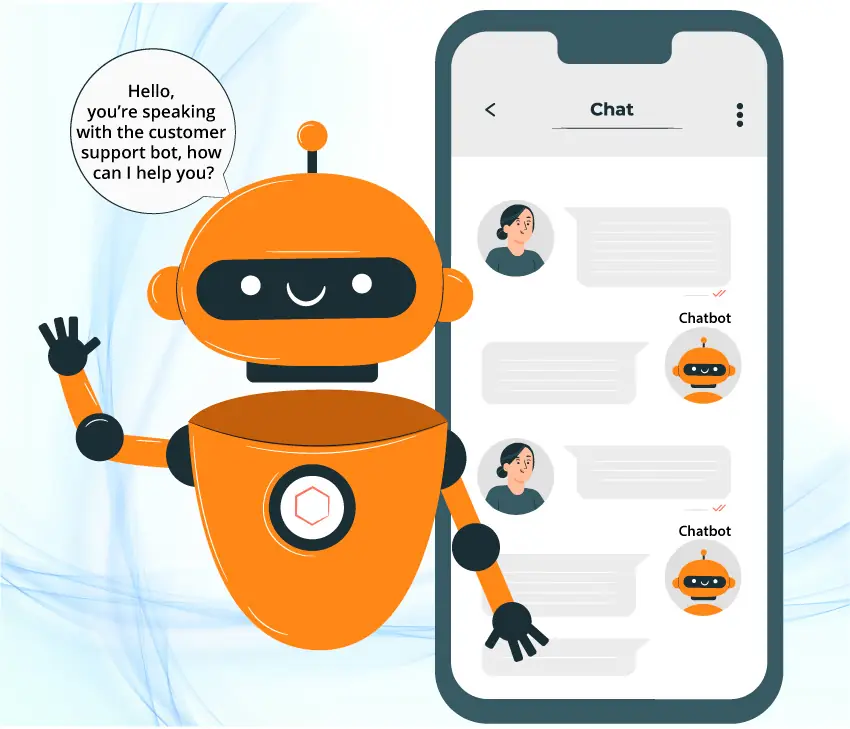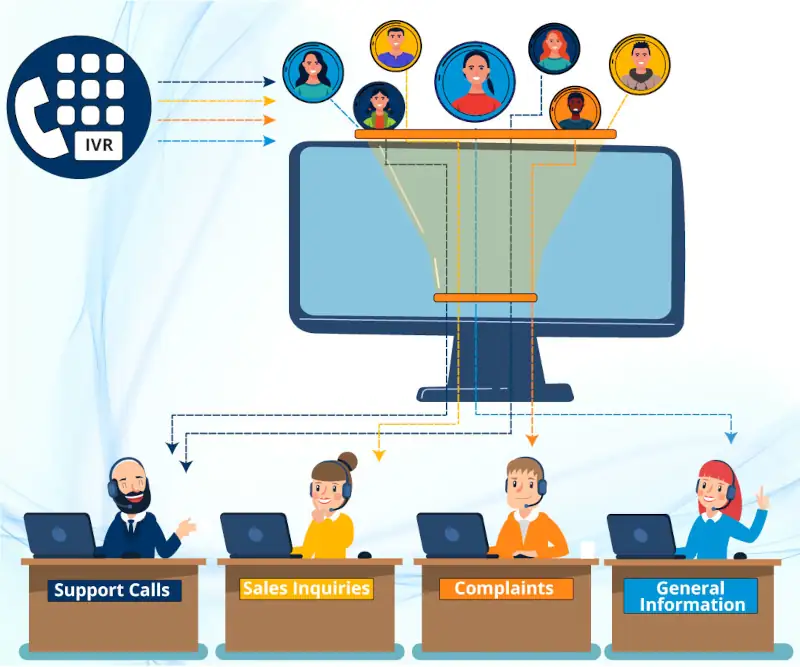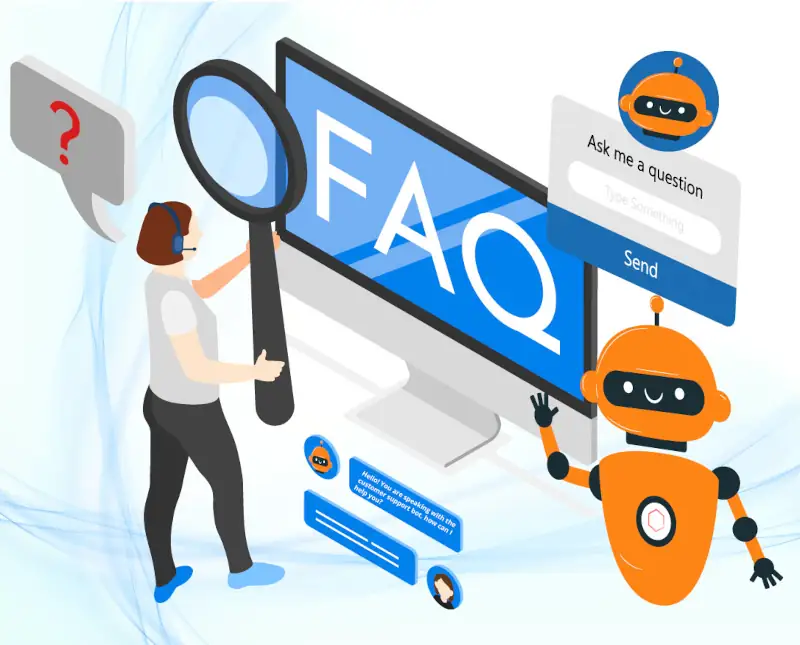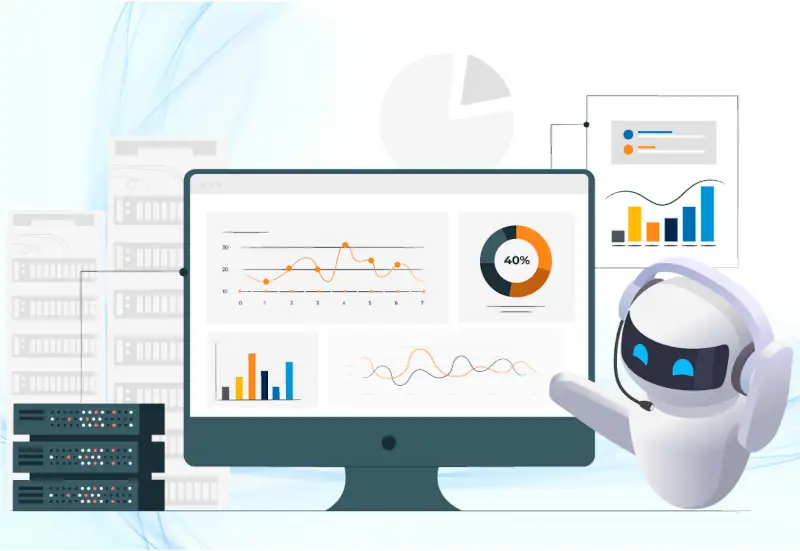One of the most transformative tools in achieving CX goals and streamlining operations is Artificial Intelligence (AI). From chatbots and virtual assistants to advanced analytics and automation, AI has the potential to revolutionize every aspect of a business. However, many organizations struggle with how and where to begin the integration of AI.
While AI can be applied across various departments, one area where its introduction is particularly impactful is the contact center. Contact centers, which manage a company’s interactions with customers, present a unique opportunity for AI to shine. The volume of customer inquiries, the need for rapid response times, and the constant push for cost reduction make contact centers the perfect testing ground for AI technologies.
With its ability to enhance both operational efficiency and the customer experience, AI adoption in the contact center offers a low-risk, high-reward strategy for companies looking to begin their AI journey.
Why are Contact Centers the Best Place for Early-Stage AI Adoption?
Contact centers are the front lines of customer service, serving as the primary touchpoint for customers seeking assistance with products or services. Whether it's answering questions, processing orders, or resolving complaints, contact centers are integral to shaping the overall CX. They are where a company’s relationship with its customers is built or broken, making them crucial to a brand’s reputation and long-term success.
The sheer volume of interactions handled by contact centers is staggering. According to industry estimates, the average contact center receives thousands of calls, emails, and chats every day.
As a result, ensuring that these interactions are managed efficiently is vital not only for maintaining customer satisfaction but also for keeping operational costs in check. Long wait times, repetitive tasks, and human resource constraints are just a few of the common challenges that contact centers face. The more interactions a center handles, the more opportunities there are for errors, delays, and customer dissatisfaction.
Efficiency is key. Companies often struggle with high call volumes, understaffed shifts, and training costs for new employees. It’s also difficult to maintain a consistently high level of customer service across the board. Inefficient contact centers lead to frustrated customers, negative brand impressions, and ultimately lost revenue. On the other hand, a smooth, efficient contact center operation can boost customer loyalty, improve service quality, and provide a significant competitive edge.
This is where AI comes in. The potential for AI to transform contact centers is vast, making it the perfect environment for early-stage AI adoption. By automating routine tasks, providing personalized customer interactions, and enhancing real-time decision-making, AI can help companies overcome many of the challenges that contact centers face. In the next section, we will explore how AI can drive real, tangible improvements in contact center performance.
How Can AI Transform Contact Centers?
AI holds immense potential to revolutionize the way contact centers operate. From automating mundane tasks to providing personalized interactions, AI can significantly enhance the efficiency and quality of service that contact centers deliver to customers. By introducing AI technologies such as chatbots, virtual assistants, and predictive analytics, contact centers can not only streamline operations but also elevate the customer experience.
AI tools are designed to handle a wide range of customer service tasks that traditionally require human intervention. One of the most well-known AI applications is the chatbot, which can automatically respond to common customer inquiries 24/7. Chatbots are capable of understanding natural language, processing queries, and providing accurate, instant responses. This reduces wait times for customers, enhancing their overall experience.

In addition to chatbots, virtual assistants can be integrated into contact centers to assist agents by suggesting responses, handling routine inquiries, or even automating entire workflows. AI-powered voice recognition and speech analytics tools can analyze conversations in real-time, identifying customer sentiment and providing agents with key insights to improve their responses.
AI Enhances Efficiency and Accuracy
AI has a unique ability to process and analyze massive amounts of data in real-time, providing immediate insights that can guide decision-making. This capability allows contact centers to optimize their operations by automating repetitive tasks such as data entry, call routing, and appointment scheduling. With AI managing these routine processes, agents can focus on more complex customer concerns, improving productivity across the board.
AI-driven systems also improve accuracy by reducing human errors in tasks like data entry and query processing. AI ensures that responses are consistent, timely, and aligned with company guidelines, which can significantly reduce instances of misinformation and frustration among customers.

24/7 Availability and Scalability
Another powerful advantage of AI is its ability to provide continuous support, even outside of regular business hours. While human agents need rest, AI can work around the clock without interruption. This is particularly beneficial for companies with global customer bases or those that deal with a high volume of inquiries. AI systems can easily scale up during peak times to manage surges in demand without the need to hire temporary staff or overburden existing agents.
Additionally, AI’s scalability ensures that the quality of service remains high, even as call volumes increase. By automatically managing initial queries or routing complex issues to the appropriate human agent, AI helps ensure that customers receive timely and efficient responses, regardless of the time of day.
Personalization at Scale
AI can also be used to create personalized experiences for customers on a large scale. By analyzing historical data and customer behavior, AI can customize interactions based on individual preferences and previous interactions. For example, if a customer regularly purchases certain products, AI can proactively suggest related items or offer discounts tailored to their buying patterns. This level of personalization improves customer satisfaction and can lead to higher conversion rates.
In summary, the potential of AI to transform contact centers is vast. By automating routine tasks, improving accuracy, providing round-the-clock support, and offering personalized experiences, AI can significantly enhance both operational efficiency and customer satisfaction.

What are the Benefits of AI Adoption for Contact Centers?
When it comes to introducing AI to your company, the contact center offers a low-risk environment with high potential for quick wins. By targeting specific areas of customer service that are most time-consuming or resource-intensive, companies can see immediate improvements in efficiency, cost savings, and overall customer satisfaction.
Low Risk and High Return
One of the primary reasons that contact centers are an ideal place to introduce AI is the relatively low risk compared to other business functions. AI adoption can be done incrementally, starting with simple applications such as chatbots for answering frequently asked questions (FAQs) or automated systems for routing calls. These solutions don’t require large upfront investments and can be tested and scaled based on performance.
Moreover, the impact of AI in contact centers is easy to measure. Companies can track key performance indicators (KPIs) such as response times, call resolution rates, and customer satisfaction scores, allowing them to quickly assess the effectiveness of their AI systems. If an AI solution is successful in improving these metrics, it can be expanded to cover additional areas of customer service.
Automation of Repetitive Tasks
One of the quickest wins with AI in contact centers is the automation of repetitive tasks that consume significant time and resources. These tasks include answering basic inquiries, processing simple transactions, or routing customers to the appropriate department. By leveraging AI-powered solutions like virtual assistants or automated ticketing systems, contact centers can handle a large volume of inquiries without human intervention, freeing up agents to focus on more complex or high-value tasks.
For instance, AI can automate call routing, directing customers to the right department based on the issue they describe. This reduces the time agents spend on basic triage and ensures that customers are connected with the most qualified person to resolve their issue. Additionally, AI-powered self-service options, such as FAQ bots or knowledge base search tools, can quickly answer customer questions without any need for human assistance.

Data Handling and Analytics
Another area where AI can deliver quick results is in the handling and analysis of data. Contact centers generate enormous amounts of data—from customer queries and interactions to call logs and service metrics. AI systems can analyze this data in real time, uncovering trends and insights that would be difficult or time-consuming for human agents to identify. For example, AI can detect recurring customer issues or identify patterns in customer behavior, allowing companies to make proactive improvements in their products or services.
AI can also provide actionable insights into agent performance, highlighting areas where agents may need additional training or support. With AI-powered analytics, contact centers can continuously monitor and optimize their operations, leading to ongoing improvements in service delivery.
Integration with Existing Systems
AI solutions are often designed to integrate seamlessly with existing contact center technologies, such as customer relationship management (CRM) systems, ticketing software, and communication platforms. This means that companies can implement AI without overhauling their entire infrastructure, which reduces disruption and speeds up the adoption process.
For example, AI-driven virtual assistants can be integrated with CRM systems to provide agents with customer data during interactions, allowing them to personalize their responses and resolve issues faster. Similarly, AI tools can enhance ticketing systems by automatically categorizing and prioritizing tickets based on urgency, enabling faster resolution of critical issues.
In conclusion, introducing AI in contact centers allows companies to achieve quick wins with minimal risk. By automating repetitive tasks, leveraging AI-powered data analysis, and integrating with existing systems, businesses can experience immediate improvements in operational efficiency, customer satisfaction, and cost reduction. These quick wins create a solid foundation for further AI adoption across other areas of the business.

